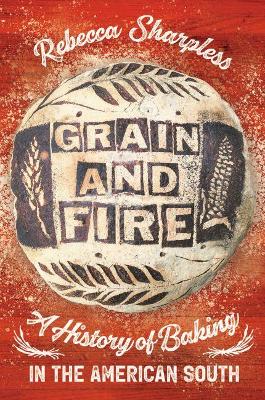Reviewed by annieb123 on
Grain and Fire: A History of Baking in the American South is a well written, layman accessible, historical survey of the culture and baking heritage in the southern USA by Dr. Rebecca Sharpless. Due out 28th June 2022 from the University of North Carolina Press, it's 344 pages and will be available in hardcover and ebook formats.
Dr. Sharpless has taken what could've been the tweediest, driest, most academic treatise and made it both accessible and human. The subject matter is admittedly academic, there are enough annotations and chapter notes and bibliography entries to satisfy the staunchest pedant but at the same time, there's a clear and compelling cultural narrative. The chapters are arranged thematically around different types of baking, the societal and economic ties to the different baking traditions from prehistoric indigenous people through to the modern day in a shrouded but mostly unbroken line from one woman's hand down through her daughters' hands to us.
This would be a good choice for public or school library acquisition. It would also make a good choice for more formal classroom instruction as a support resource for women's studies, cultural studies, sociology, etc. I found the entire book quite interesting. It is, admittedly, a niche book. The language and format are rigorous and formal. It's definitely not inaccessible for the average reader, but it will take some effort (and I think that's a good thing).
Five stars. This is well and deeply researched and engaging.
Disclosure: I received an ARC at no cost from the author/publisher for review purposes.
Reading updates
- Started reading
- Finished reading
- 15 May, 2022: Reviewed
